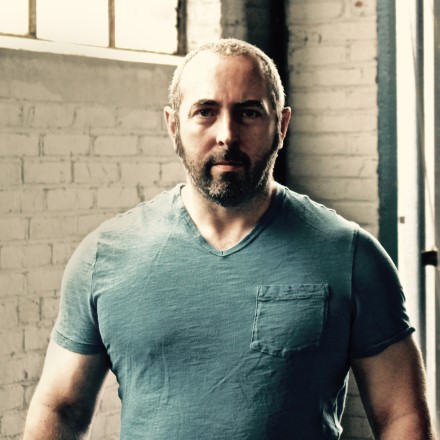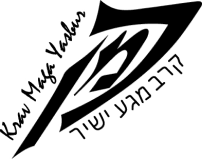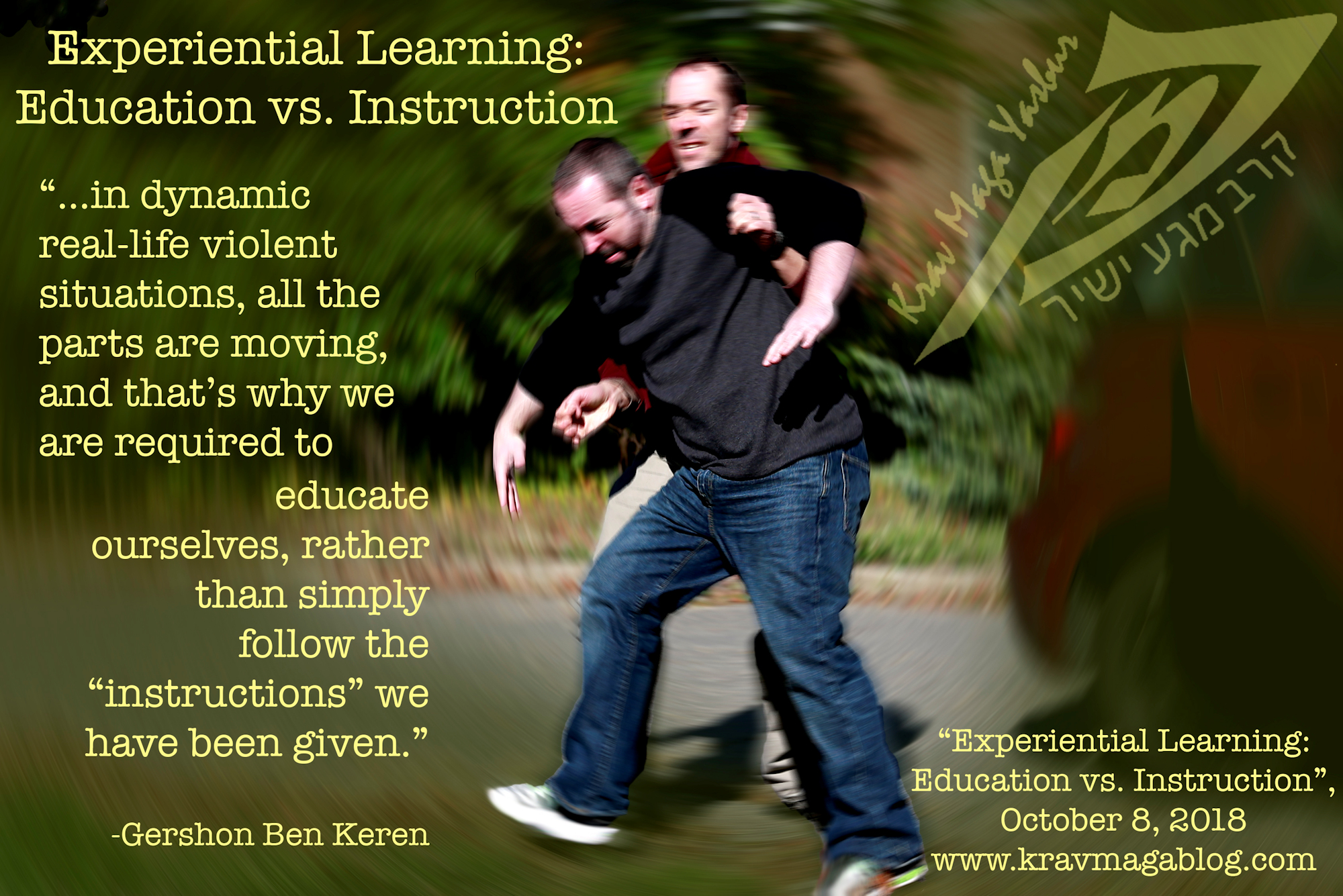Two of my core beliefs regarding self-defense training, for reality-based fighting, are that techniques don’t really exist, and that if something hasn’t been experienced – even if it is “known” – it won’t be implemented. These two ideas are linked, and have a basis, in David Kolb’s Experiential Learning Theory. A Psychologist, greatly influenced by the work(s) of Jean Piaget, who is best known for his work studying the ways in which children learn, and experience things; he lays out a natural learning process, that can be replicated in the way that we teach and train self-defense. In this article, I want to look at Kolb’s theory, and how it can be applied to help us be better prepared for dealing with real-life altercations, and what it may mean for the way we behave, operate and implement the techniques and solutions we have learnt. There is a big difference between education and demonstration – as self-defense instructors we should understand the most effective ways to teach, and as students (which we all are), the best ways to learn.
Kolb saw experience, and the way it translates to knowledge/understanding as a cyclical process, that occurs over time i.e. we experience something, and then over time we apply certain processes to that experience to develop an understanding of what actually happened, and how we might respond to a similar situation in the future. This is not merely a cognitive/mental process, but one that considers all the components of an incident/experience, such as the environment, our emotions at the time, etc. that all go to affect the learning process, and the way we respond to future events. Kolb identifies two ways in which we initially learn (Concrete Experience(s) and Abstract Conceptualization), and two ways in which we transform that learning (Reflective Observation and Active Experimentation), into knowledge and understanding; that we can apply to future events. These four methods can be viewed as cyclical, but they don’t have to be.
From a cyclical perspective the first stage is that of the “Concrete Experience”, which involves participating in the experience. From a training perspective, this may involve somebody throwing a punch at you for example, however to have a complete experience, this shouldn’t be a sterile or clinical one, as context is important e.g. a “storyline” should be created, which might involve somebody shouting at you for spilling a drink over them, then approaching you, maybe pushing you, and then throwing the punch, etc. If this could be done in the actual setting, then the environment in which it was experienced, would be added to the experience, and if the person experiencing the attack, could be adrenalized beforehand, they would have an emotional reference point, that would add to it as well.
Anyone who has conducted, or been part of a scenario-based training exercise, will know that it finishes with a debrief, involving a dissection of what occurred and what could possibly have been done differently or better, etc. In Kolb’s model/theory, this would represent the “Reflective Observation” phase, where the individual consciously looks back and reflects on their “experience” in order to make sense of it. One of the complexities in this phase of learning, is that when people are adrenalized and put under stress and duress, their memories of what occurred can be suspect. The brain abhors a vacuum, and if certain parts of the experience don’t add up, and/or can’t be tied together, the brain will create/invent an event so that the complete experience is able to make sense. Professionally, I’ve remembered incidents incorrectly, with CCTV footage correcting my false and created memories – this wasn’t a deliberate or conscious recreation of what happened, rather there were things that I wasn’t aware of, that were needed for everything to make sense of, and my brain filled in the gaps. Anyone who has experience dealing with witnesses in a legal setting can attest to how unreliable a person’s memory can be. If you do conduct any high stress, scenario-based training, my advice is to film it, so that a person’s reflection of an experience can be a correct one. If you are reflecting on an actual experience, trying to re-visualize it can be helpful, so you have something based in reality to reflect on.
In the “Abstract Conceptualization” phase, the individual tries to build a theory or model out of their experience e.g. when somebody moves towards me in a certain way that reflects a certain level of aggression, if they push me, the push will be followed by a punch, etc. This is where we start thinking about what happened, in a more practical way i.e. we look at the broader picture of our experience, and try and pick out what the salient and most important points are, which will then lead us into the “Active Experimentation” phase, where we plan what to do in the future, should the same thing, or something similar happen again e.g. we might look at how to better position ourselves in relation to our attacker, how to prevent or recover from a push etc. With this “new learning”, we could experience the training situation again, and create another “concrete experience”, that we repeat the process with, actively experimenting with new and more effective solutions, based on our experiences. Often be repeating such training experiences, with things happening slightly differently each time, we start to improvise solutions based on components of techniques, rather than simply performing or replicating them; and this is one reason why I don’t believe in techniques, as techniques, but as teaching tools that allow us to improvise and respond in the moment i.e. our solutions become more abstract, and experimental, rather than something rigid and fixed; it should be noted that experimental should not be confused with completely untested, whilst recognizing that in every new experience and situation you face, your techniques are untested in those particular ones.
There is a difference between education and instruction, which are both different to performance and demonstration. If we practice self-defense techniques and solutions, without thinking about them, we are simply following instructions; a useful method if you are baking a cake, as all of the variables are fixed in relation to each other. However, in dynamic real-life violent situations, all the parts are moving, and that’s why we are required to educate ourselves, rather than simply follow the “instructions” we have been given. Such education requires experience, reflection and abstraction on such experiences, and then experimentation concerning them. If we are blindly following somebody else’s instructions, rather than educating ourselves according to our experiences, we are likely to find our ability to handle a real-life confrontation lacking.
Share:

Gershon Ben Keren
2.8K FollowersGershon Ben Keren, is a criminologist, security consultant and Krav Maga Instructor (5th Degree Black Belt) who completed his instructor training in Israel. He has written three books on Krav Maga and was a 2010 inductee into the Museum of Israeli Martial Arts.
Click here to learn more.

